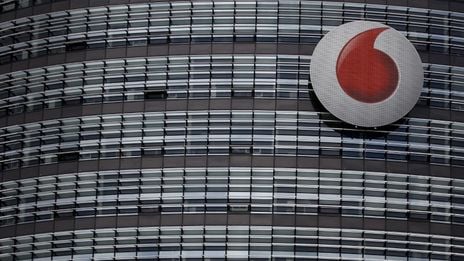Colao, the Italian boss of the world's second biggest mobile company, said he expected politicians in Britain and the European Union to ultimately adopt a pragmatic approach to Brexit despite recent signs of brinkmanship.
As the head of a company that has to deal with Brussels and national regulators across Europe, Colao has first hand knowledge of the inner workings of the bloc during his nine years in charge of the company.
"Once you go through the usual pre-negotiation tactics that everybody uses, I think pragmatism should prevail," Colao, 55, told Reuters on Tuesday after a press conference for the company's full-year results.
"I disagree with people who say that politicians are irrational, politicians are among the most rational people that I meet because they use the rationality of political support, so we need to be sure there is a good environment for providing political support for politicians who want to find agreement."
The vote to leave the EU last June has created an unprecedented level of uncertainty for British-based companies that operate in Europe, it's biggest trading partner.
Since Prime Minister Theresa May triggered the start of the divorce process, politicians in both Britain and Europe have warned that Brexit talks could end in failure.
A disorderly Brexit with no deal would sow chaos through the economies of Britain and the EU by shattering trading relationships, spooking financial markets and tarnishing London's reputation as a global financial centre.
But Colao, who supported the campaign to keep Britain in the European Union, said he was more optimistic than many of his peers that a deal could be reached without too much disruption.
He said Vodafone could be affected by an economic slowdown in Britain or a divergence between the way its home market and Europe is regulated.
But unlike some industries like the financial services sector it does not need to change the way it operates because it is already organised on a country by country basis.
"So the question is what is the likelihood that the Brexit process actually determines a slowdown in the economy or even worse consequences, now here I happen to be a little bit more optimistic than most people because I believe that it is nobody's interest to generate that," he said.
"The leadership of Europe and the leadership of the large European countries will at some point find a common platform with Britain," Colao said.
"And maybe businesses like us, who are based in Britain but are very European, and symmetric ones, can also help in finding good solutions to what in the end is a negotiation."
(Editing by Guy Faulconbridge)
By Paul Sandle and Kate Holton






